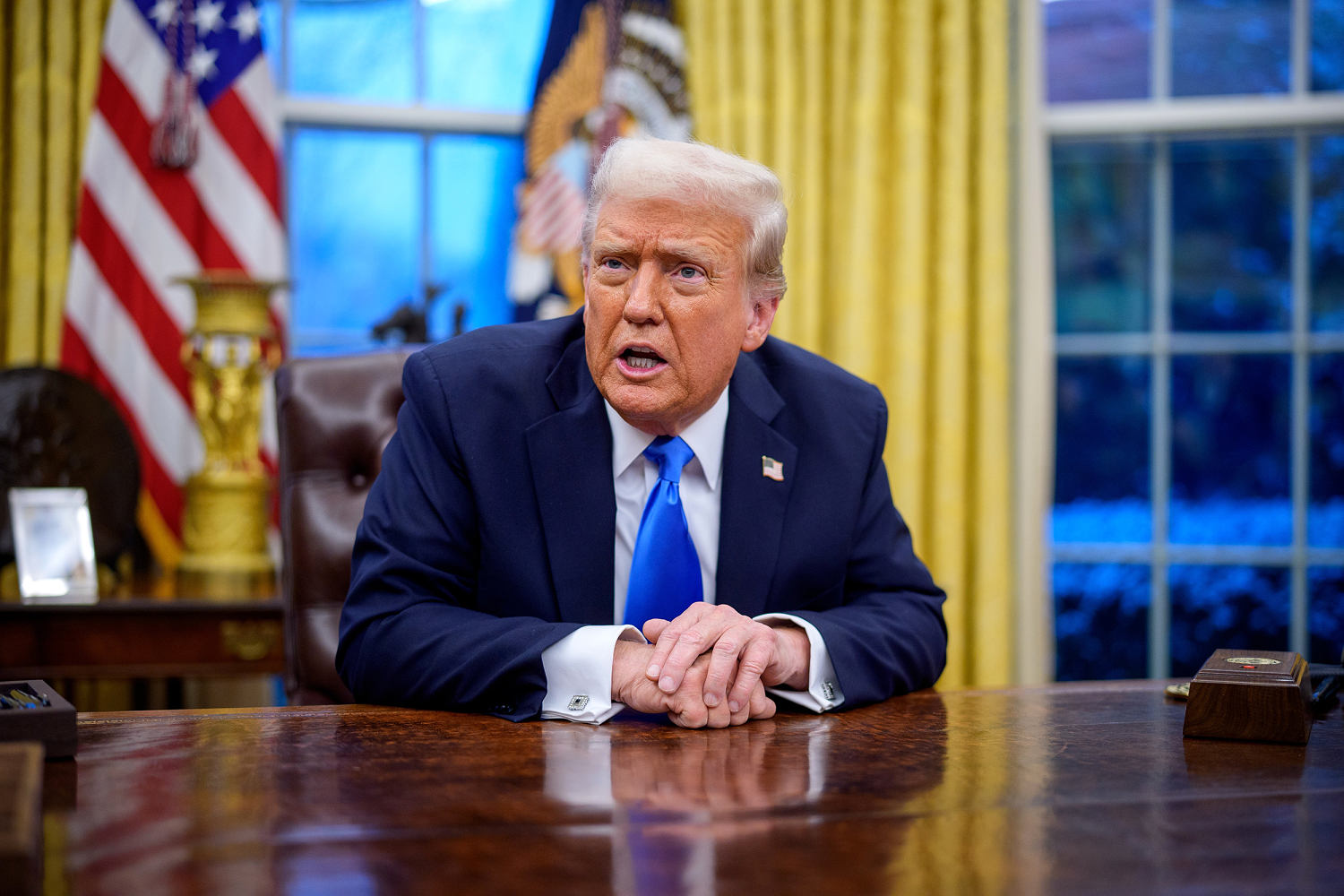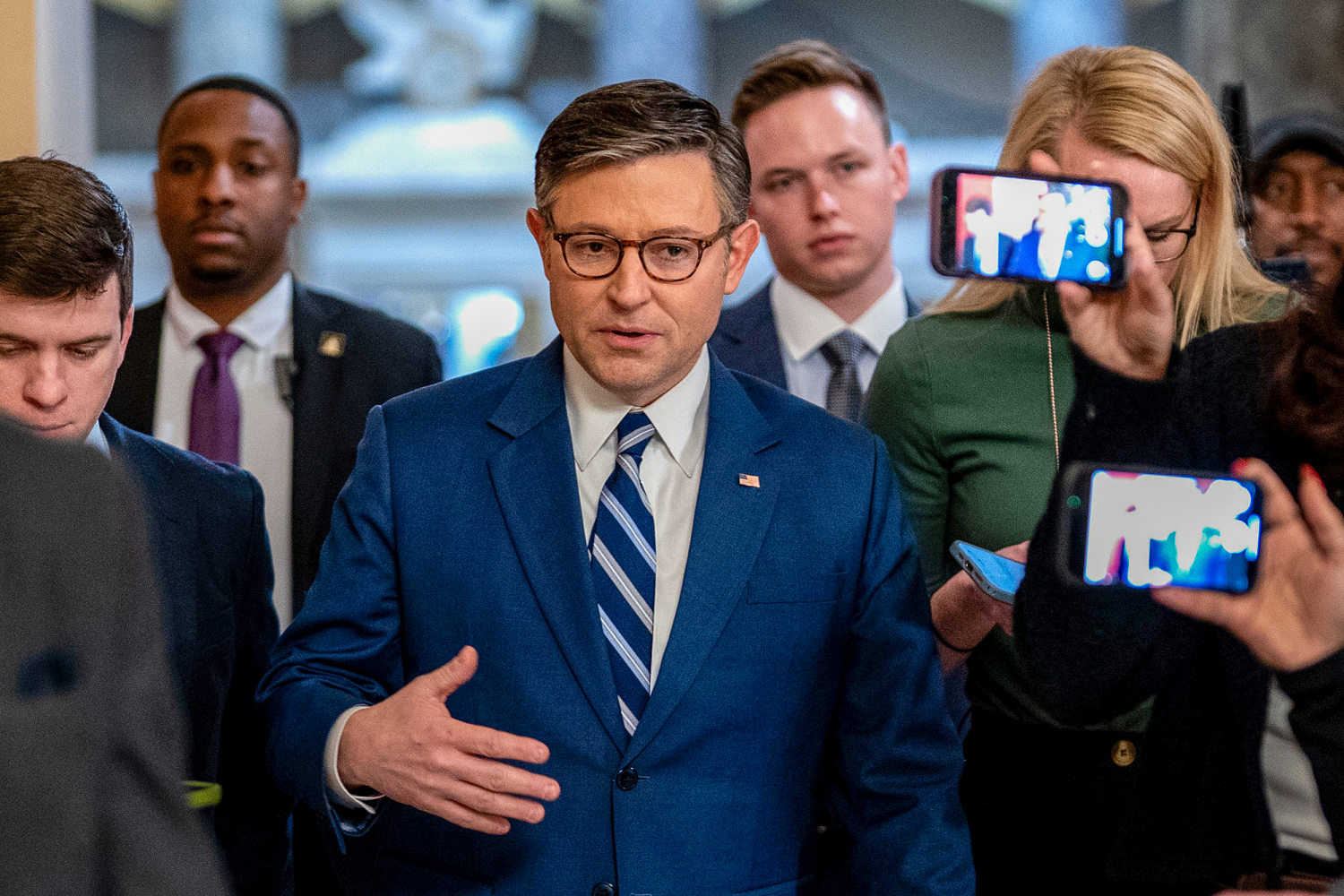Trump needs a lesson on the Monroe Doctrine for US-Colombia relations

When President Biden declared Colombia a major non-NATO ally in 2019, he called it the “linchpin … to the whole hemisphere.” The designation, meant to reinforce economic and security cooperation between Colombia and the U.S., also recognized a unique 200-year relationship based on shared values: democracy, trust, rule of law, security and sovereignty.
In the early 21st century, bilateral cooperation in “Plan Colombia” had transformed the country from a near-failed state to the most reliable U.S. security partner in Latin America. Once besieged by violent narco-insurgencies it was powerless to combat, Colombia by 2016 had become an emerging economy with a burgeoning middle class and strong institutions.
The recent social media standoff between Colombian President Gustavo Petro and Trump portends a deterioration of the U.S.-Colombia relationship, which has been declining since 2022. The decoupling, examined alongside the doubling of cocaine production potential in Colombia in 2023, and the fact of a former violent revolutionary occupying the Casa Nariño, have several common causes. But seen under a broader lens, those causes can be linked to a stream of self-serving misinterpretations of the 200-year-old Monroe Doctrine — a policy originally intended to extend goodwill and protect fledgling South American democracies.
Last month's war of words between the two populist presidents expressed mutual ill will and deep ideological differences. Petro refused to receive 200 deportees back to Colombia, citing inhumane treatment. Trump used economic leverage to bully Petro into submission, threatening immediate sanctions, tariffs and a freeze of Colombia's aid. That furnished Petro fresh ammunition to rant about American arrogance and imperialism, his favorite grievance and a key component of his political messaging.
Trump’s exploitative version of the Monroe Doctrine only bolsters Petro’s propaganda power. In 2019 Trump invoked the doctrine in a speech to the United Nations, linking it to his brand of “America First” hegemony, and reducing it to “rejecting foreign interference,” which is code for China. Ironically, Trump’s bullying might drive Colombia into China’s arms.
The decline of positive U.S. engagement in Colombia had already contributed to the spread of faux-democratic thinking and disinformation-fueled populism throughout the hemisphere. Today U.S. policy in Latin America is reduced to one of two extremes, neglect or bullying. Neither supports Colombia’s democracy.
Biden’s policy of neglect in Colombia coincided with the inclusion of former guerrillas as prominent players in Colombian politics.
Mayor Elicier Camacho Gral, former general of the Colombian National Police, told me in an interview that Colombia declined rapidly from a sophisticated democracy to a destabilized territory with a compromised government where criminal groups have a presence in two-thirds of the nation. Many Colombians believe their first leftist president is more friendly to narco-terrorist groups than to the democratic state Colombia has arduously built.
To be sure, the Monroe Doctrine has been interpreted in varied ways, sometimes to justify military intervention and imperialism. But its original intent, as articulated in President Monroe’s seventh address to Congress, was to protect the Western Hemisphere from outside interventions and show respect for the sovereignty of governments that the U.S. recognized as independent.
It said that the U.S. “could not view any interposition for the purpose of oppressing them, or controlling in any other manner their destiny, by any European power in any other light than as the manifestation of an unfriendly disposition toward the United States.”
If transnational terrorist groups can be considered oppressors, Plan Colombia was a successful manifestation of the Monroe Doctrine. Colombian General Eliecer Camacho told me Colombia's security crisis is related to the gradual dismantling of Plan Colombia in favor of the 2016 Peace Deal between the FARC (Revolutionary Armed Forces of Colombia) and the Colombian government, which he feels started an ethos of "permissiveness towards delinquency."
“Contrary to popular opinion, the U.S.-Colombian partnership was a success,” he said.
Plan Colombia trained and modernized the national army into something capable of combating the armed insurgencies. It also trained and strengthened Colombia’s judiciary, ushering in an era of accountability and stability.
Today, Colombia is isolated, with a president complicit in institutionalizing impunity for terrorists. Until last month, there was no military or police presence in the volatile border region of Catatumbo, when a border-control war broke out between the ELN (National Liberation Army, now a proxy of the Venezuelan dictatorship) and FARC dissidents, in which 80 people died and 50,000 were displaced.
In response, Camacho said, “Petro sent forces to Catatumbo, but the military had already been drained of its strength — both financially and by the firing of leadership.”
But instead of declaring a state of conflict in the region, the president declared a 90-day state of emergency over all of Colombia. Camacho said, “Analysts believe the president is trying actually to increase the presence of delinquents, in order to take emergency controls to the point of staying in power in 2026.”
"For the United States, losing Colombia as a security ally is like losing Israel,” the general warned. Venezuela’s patronage of Iran’s Hezbollah and the ELN constitute a “grave security threat to Colombia and the entire hemisphere.”
Ingrid Serrato, a San Francisco-based immigration legal consultant, left her position in the Petro mayoral administration because of rampant corruption.
“Colombia’s democracy is falling apart under a false leftist discourse,” she told me. “Petro’s reforms have a criminal origin. They buy votes and reforms with the money they are stealing.”
From my experience living in Colombia, many there share her concern, as evidenced by the president’s 60 percent disapproval rate of 60 percent.
There is a hidden link between self-oriented U.S. foreign policies and the rise of faux democracies in South America. “America First” threatens everything in its barbaric path, from security to trust to public opinion. Colombia doesn’t need a vacuum or a bully; it needs trustworthy partners. Trumpism is the opposite; it lacks the goodwill necessary to build trust.
Deconstructionists want to tear down all that has been built together for the public good. Amid the ensuing gloom, it’s imperative for democracy builders to cling to those values that have historically brought people together, instead of those that tear us apart.
Kristina Foltz is a Rotary ambassadorial scholar. She writes on U.S.-Latin American affairs
-

The Trump 50 per cent doctrine
With ruthless purges of the US government, the president is tipping the scales towards autocracyFinancial Times - 9h -

Judge blocks Trump administration from terminating DEI-related grants
The judge found the administration's mandate that grant recipients not engage in "equity-related" programs was too broad.NBC News - 3d -

There is a clear Trump doctrine. Those who can’t see it won't have a say in reshaping the world | Nesrine Malik
The sooner the US’s former friends realise the old global order is over, the sooner they can organise to regain power and agency – the only language Trump understands. A resonant phrase during ...The Guardian - 1d -
Trump 'doesn't care' what happens to Ukraine, former foreign minister claims as U.S.-Kyiv relations sour
U.S. President Donald Trump doesn't appear to be concerned about Ukraine's post-war future, the country's former Foreign Minister Dmytro Kuleba told CNBC.CNBC - 4d -

Trump suggests Musk needs to be 'more aggressive'
President Trump suggested in a new post that tech billionaire Elon Musk, one of his closest allies, needs to be “more aggressive" — presumably referring to his efforts to slash spending, downsize ...The Hill - 3d -

In foreign policy, Trump needs to be more like Reagan, less like Biden
The Biden administration's reluctance to take action against Russia in Ukraine has been criticized, while Trump's new Defense Secretary Pete Hegseth has made similar rookie mistakes, potentially ...The Hill - 3d -

Conservatives threaten to tank House budget vote needed to advance Trump agenda
Speaker Mike Johnson said Tuesday he is plowing forward this week with a vote on House Republicans' multi-trillion-dollar budget blueprint, a crucial test for President Donald Trump's legislative ...NBC News - 5h -

Lessons in foreign aid from a trip to Uganda
When President Trump and Elon Mask brought the shutters down on USAID, I was reminded of things I had seen and heard in Uganda last month while conducting development research there — things that ...The Hill - 4d -

Musk may be the wedge Democrats need to separate Trump from his working-class base
Elon Musk is dominating the media and the political landscape, with his influence over President Trump and his role in the Department of Government Efficiency (DOGE) raising concerns about his ...The Hill - 2d
More from The Hill
-

Utah on the verge of being the first state to ban fluoride in public water
Utah is on the verge of becoming the first state to prohibit cities and towns from adding fluoride to their public water supply. The Utah Senate on Friday voted 18-8 to give final approval to ...The Hill - 24m -

Trump directs investigation preceding potential copper tariffs
President Trump on Tuesday directed his Commerce secretary to investigate the need for possible tariffs on copper, the latest industry to potentially be targeted by Trump’s sweeping trade agenda. ...The Hill - 31m -

Senate Democrats press Trump's FTC commissioner nominee over agency independence
Multiple Senate Democrats on the Commerce, Science and Transportation on Tuesday pressed President Trump's Federal Trade Commissioner nominee, Mark Meador, over the independence of the agency amid ...The Hill - 44m -

White House names interim DOGE administrator
The White House on Tuesday disclosed that the interim administrator of the Department of Government Efficiency (DOGE) is Amy Gleason after repeated questioning from reporters. A White House ...The Hill - 50m -

Whitmer on Republican lawmaker's same-sex marriage resolution: 'Hell no'
Michigan Democrats, including Gov. Gretchen Whitmer, are pushing back against a Republican-led resolution asking the Supreme Court to reverse its decision that legalized same-sex marriage ...The Hill - 50m
More in Politics
-

Rep. Spartz says she will vote no on GOP budget resolution if ‘language doesn’t change’
Rep. Victoria Spartz (R-Ind.) explains why she plans to vote no on Speaker Mike Johnson’s budget resolution. Rep. Spartz also weighed in on whether Congress will be able to fund the government as ...NBC News - 19m -

Utah on the verge of being the first state to ban fluoride in public water
Utah is on the verge of becoming the first state to prohibit cities and towns from adding fluoride to their public water supply. The Utah Senate on Friday voted 18-8 to give final approval to ...The Hill - 24m -

Trump directs investigation preceding potential copper tariffs
President Trump on Tuesday directed his Commerce secretary to investigate the need for possible tariffs on copper, the latest industry to potentially be targeted by Trump’s sweeping trade agenda. ...The Hill - 31m -

Senate Democrats press Trump's FTC commissioner nominee over agency independence
Multiple Senate Democrats on the Commerce, Science and Transportation on Tuesday pressed President Trump's Federal Trade Commissioner nominee, Mark Meador, over the independence of the agency amid ...The Hill - 44m -

White House names interim DOGE administrator
The White House on Tuesday disclosed that the interim administrator of the Department of Government Efficiency (DOGE) is Amy Gleason after repeated questioning from reporters. A White House ...The Hill - 50m